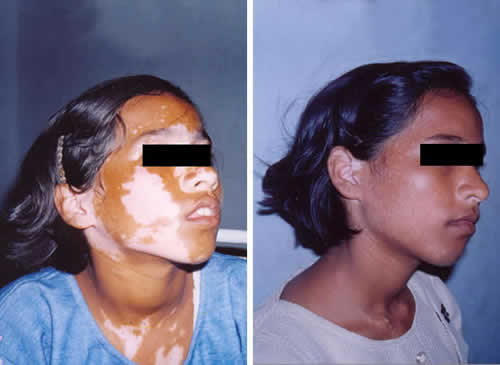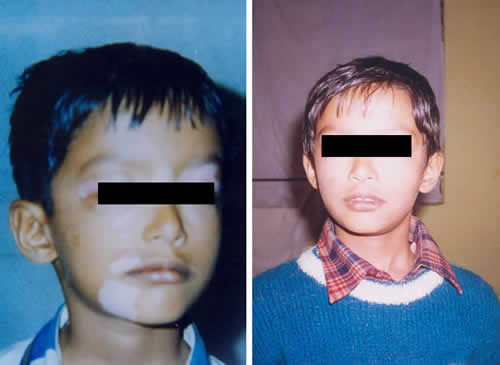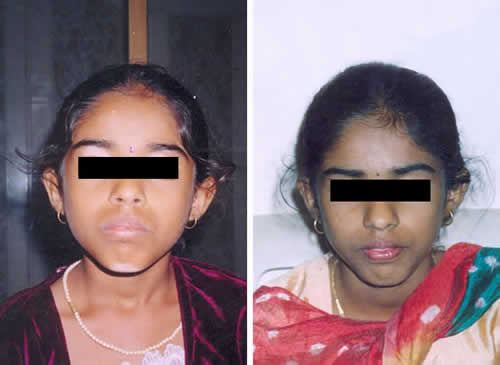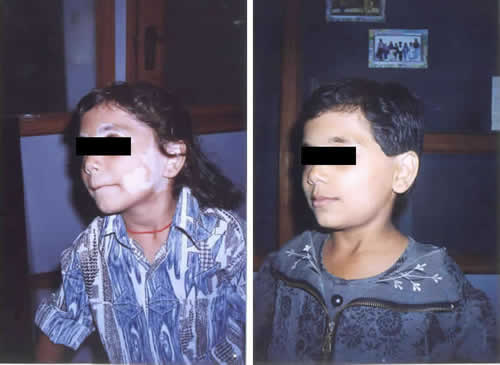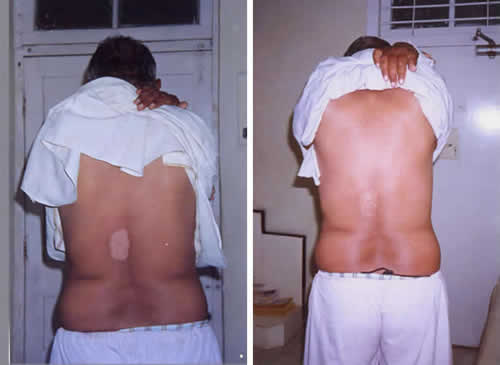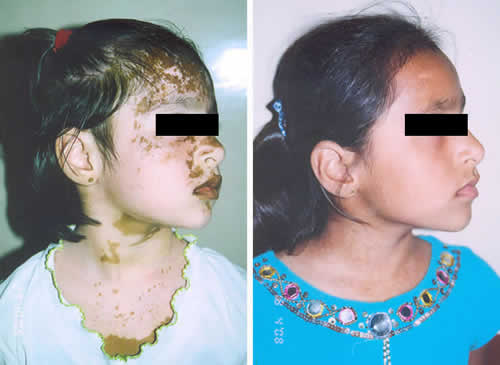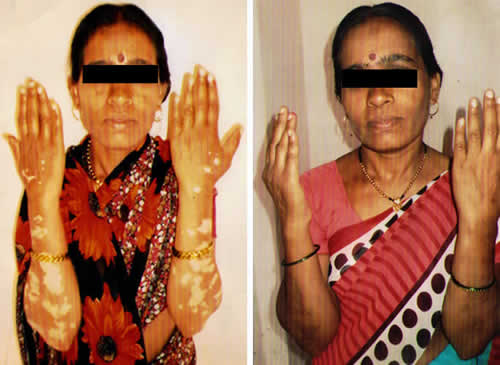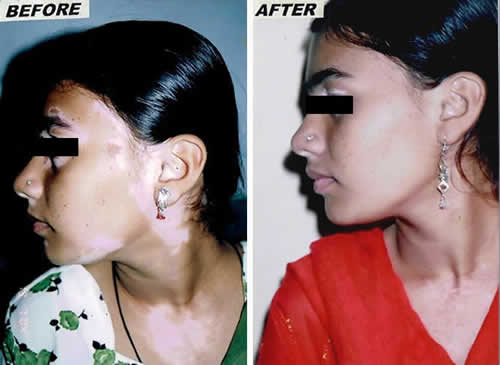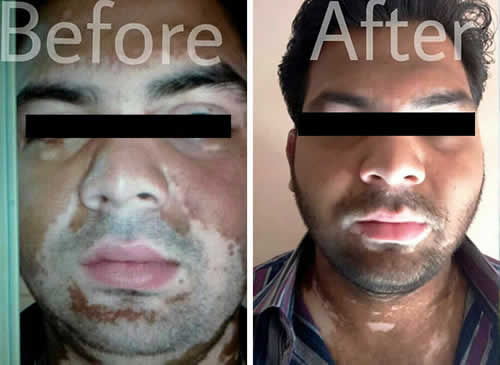Frequently Asked questions
The inner healing of your chronic disease by Dr. Kabra’s research based homeopathic treatment...
If I select on-line treatment at Lifeline clinics, can my case be studied by Dr. Mahendra Kabra?
Yes, Dr. Mahendra Kabra in person reviews all on-line cases.
Can I consult with Dr. Mahendra Kabra over the phone throughout the course of treatment?
Yes, If your case demands your rebuke Dr Kabra necessary.
Does Dr. Mahendra Kabra create himself offered for consultation throughout his travels in alternative cities,States &countries?
Dr. Kabra likes to visualize the patients where he travels. Intimation is distributed to our patients from that country or state before Dr. Kabras scheduled visits.
Why does one advocate homeopathy?
homoeopathy is suggested as a result of it treats, particularly the chronic diseases, at a deeper level giving lasting relief as compared to the standard medicines which provides temporary relief in most chronic diseases.
Which diseases square measure treated well with homeopathy?
Homeopathy is simpler for chronic and revenant diseases like allergies, arthritis, auto-immune diseases, skin diseases, chronic infections, muscular diseases, metabolic diseases, psycho-somatic diseases, etc. to call a number of the many diseases wherever homoeopathy may prove effective: Allergies, arthritis, psoriasis, vitiligo, lichen, urticaria, migraine, sinusitis, frequent colds, autism, spondylitis, IBS, inflammatory bowel disease, viral hepatitis, ADHD, inactive thyroid, atrophic arthritis, Chalazion, anxiety disorders, depression, GERD, hair loss, neuralgy, and lots of additional. Please click here to visualize a bigger list of diseases.
How do i do know if homoeopathy will facilitate my disease?
A qualified and skilled medical care doctor will decide if your unwellness will be helped with homoeopathy or not.
Is homoeopathy slow to act?
Homeopathy is comparatively slow to act repeatedly, if not continuously, as compared to chemical based mostly convention medicines.
Is homoeopathy safe?
Homeopathy is nearly continuously safe thanks to the character of medicines, if prescribed by qualified medical care doctor. it's safe for babies, pregnant females and senior folks.
Do medical care medicines contain corticosteroid or steroid?
No, medical care medicines don't contain any corticosteroid or steroid.
How is Lifeline clincs medical care treatment totally different than alternative regular medical care clinics in my town or country?
Well, Lifeline Clinics and analysis Institute and not simply a clinic. underneath care of Dr.Mahendra Kabra, MD, a world notable practitioner, Lifeline clinics square measure committed to high-quality analysis based mostly treatments on and knowledge of Dr. Kabra for concerning thirty two years. It additionally has the advantage to latest analysis work conducted at Lifeline. Lifeline has given distinctive homoeopathy expertise to our patients from over ninety one countries through teleconsultation and video conference.
What is Vitiligo?
Vitiligo is a long-term skin condition characterized by the loss of pigment in certain areas, resulting in white patches on the skin.
What causes Vitiligo?
The exact cause of Vitiligo is unknown, but it is believed to be an autoimmune disorder where the immune system mistakenly attacks and destroys the melanocytes (cells responsible for producing pigment) in the skin.
Is Vitiligo contagious?
No, Vitiligo is not contagious. It cannot be transmitted from person to person through physical contact or any other means.
Who can develop Vitiligo?
Vitiligo can affect people of all ages, genders, and ethnicities. It is estimated to affect around 1% of the global population.
Are there any risk factors for developing Vitiligo?
While the exact causes are unknown, certain factors like having a family history of Vitiligo, having an autoimmune disease, or experiencing certain triggering events
Is there a cure for Vitiligo?
Currently, there is no known cure for Vitiligo. However, there are various treatment options available to help manage the condition and improve the appearance of the skin.
Can Vitiligo be reversed?
While complete repigmentation may not always be possible, certain treatments and therapies can help in repigmenting the affected areas of the skin, thereby reducing the visibility of white patches.
Can sun exposure worsen Vitiligo?
Sun exposure can be harmful to individuals with Vitiligo, as the depigmented areas are more susceptible to sunburn. It is important for people with Vitiligo to protect their skin from the sun by using sunscreen and wearing protective clothing.
Can makeup be used to cover up Vitiligo patches?
Yes, specially formulated camouflage makeup can be used to cover up Vitiligo patches and make the skin appear more even-toned. These products are designed to be long-lasting and waterproof.
Is Vitiligo associated with any other health conditions?
Vitiligo is commonly associated with other autoimmune diseases such as thyroid disorders, diabetes, and alopecia areata. Regular check-ups may be recommended to monitor for any related conditions.
Are there any dietary restrictions for people with Vitiligo?
There are no specific dietary restrictions for people with Vitiligo. However, maintaining a healthy and balanced diet is important for overall well-being.
Can Vitiligo be diagnosed through a blood test?
No, Vitiligo is primarily diagnosed through a physical examination of the skin by a dermatologist. In some cases, additional tests may be done to rule out other conditions or to assess the extent of Vitiligo.
Can Vitiligo be passed on to children?
While there is a genetic predisposition to Vitiligo, it does not mean that every child of a person with Vitiligo will develop the condition. The risk of developing Vitiligo is generally higher if a close family member has the condition.
Are there support groups or organizations for people with Vitiligo?
Yes, there are several support groups and organizations dedicated to providing information, resources, and support to individuals with Vitiligo. These groups can be valuable for sharing experiences and coping strategies.
Is it possible to prevent Vitiligo?
Since the exact cause of Vitiligo is unknown, it is difficult to prevent its onset. However, avoiding triggers like excessive sun exposure or trauma to the skin may be helpful in some cases.
Can tattoos be done on areas affected by Vitiligo?
Tattooing can be an option to camouflage Vitiligo patches. However, it is essential to consult with a skilled and experienced tattoo artist who understands the unique challenges associated with tattooing over depigmented skin.
Does Vitiligo improve or worsen with age?
The progression of Vitiligo can vary from person to person. In some individuals, the condition may remain stable or improve over time, while in others, it may progress and spread to larger areas of the body.
Can Vitiligo affect the quality of life?
Yes, Vitiligo can have a significant impact on an individual's quality of life, leading to emotional distress, low self-esteem, and social withdrawal. Seeking emotional support and professional help can be beneficial in managing these challenges.
Are there any alternative or complementary therapies for Vitiligo?
While alternative therapies like herbal remedies, vitamins, and homeopathic treatments are often promoted, their effectiveness in treating Vitiligo is not scientifically proven. It is important to consult with a dermatologist before trying any alternative therapies.
Can Vitiligo go away on its own?
In some cases, small patches of Vitiligo may repigment on their own without any treatment. However, it is unpredictable, and not all patches will naturally regain pigmentation.
How can I find a dermatologist who specializes in Vitiligo?
You can start by asking your primary care physician for a referral to a dermatologist who has experience in treating Vitiligo. Additionally, online directories and support groups can provide recommendations based on user experiences.
Is there ongoing research on Vitiligo?
Yes, research on Vitiligo is continuously being conducted to better understand its causes, develop new treatment options, and improve the overall management of the condition
What is the global prevalence of vitiligo?
Vitiligo affects approximately 0.5% to 1% of the global population.
Does vitiligo only affect certain countries?
No, vitiligo is a prevalent condition worldwide, affecting people in various countries.
How does vitiligo impact individuals?
Vitiligo can have both physical and emotional implications, as visible white patches on the skin can lead to stigmatization and affect self-esteem.
Is there a natural treatment approach for vitiligo?
Yes, natural treatments provide a holistic approach to addressing vitiligo and promoting the body's natural healing processes.
What are the physical and emotional effects of vitiligo?
Vitiligo can cause self-consciousness and social stigma due to the noticeable white patches on the skin.
What does a holistic approach entail in natural treatment?
A holistic approach considers an individual's physical, mental, emotional, and psychological well-being in treating vitiligo.
Are there any promising natural remedies for vitiligo?
Yes, remedies such as Arsenicum sulphuratum flavum, Hydrocotyle asiatica (gotu kola), and Psoralea corylifolia have shown promise in initiating repigmentation and shrinking vitiligo patches.
Can natural treatments address the underlying causes of vitiligo?
Yes, natural treatments aim to address both the visible symptoms and underlying causes of vitiligo.
How can individuals embrace a holistic and natural approach to vitiligo
By exploring natural remedies and seeking guidance from qualified practitioners for personalized treatment plans.
Is it essential to consult a qualified practitioner for natural treatment?
Yes, seeking advice from qualified practitioners is crucial for effective and personalized natural treatment plans.
Can natural treatment help in repigmentation?
Yes, natural treatments, when tailored to the individual, can help stimulate repigmentation in vitiligo patches.
Are there any specific symptoms that natural remedies target?
Yes, natural remedies can address symptoms such as skin dryness, itching, burning, and raised or thickened edges of vitiligo patches.
Can natural treatment alleviate the emotional distress caused by vitiligo?
Yes, by addressing both physical and emotional aspects, natural treatments can help individuals cope with the emotional impact of vitiligo.
Can natural treatment be used alongside other conventional treatments?
Natural treatments can be used in conjunction with conventional treatments, but it is important to consult with healthcare professionals for personalized guidance.
Is vitiligo a condition that affects people of all ages?
Yes, vitiligo can affect individuals of all ages, from children to adults.
Do natural remedies vary depending on the individual's condition?
Yes, natural treatment plans should be personalized to address each individual's specific needs and symptoms.
Are there any side effects associated with natural treatments for vitiligo?
Natural treatments generally have minimal side effects, but it is important to discuss any concerns with a qualified practitioner.
Can natural treatments provide a long-lasting solution for vitiligo?
Natural treatments can offer long-term benefits and help individuals manage their condition effectively.
Are there any limitations to natural treatment for vitiligo?
The effectiveness of natural treatment may vary depending on individual factors, and results cannot be guaranteed for every person.
Can natural treatment completely cure vitiligo?
While natural treatments can stimulate repigmentation and improve the condition, a complete cure for vitiligo may not always be achievable.
Can natural treatment be used preventively for vitiligo?
Natural treatment approaches can help maintain overall skin health and potentially reduce the risk of developing vitiligo.
How can individuals start their journey towards natural treatment for vitiligo?
By seeking guidance from qualified practitioners and embracing a holistic approach, individuals can begin their path towards natural treatment for vitiligo and healthier skin.
What is natural treatment for vitiligo?
Natural treatment refers to an alternative approach that utilizes natural remedies, lifestyle changes, and holistic therapies to manage vitiligo symptoms and potentially stimulate repigmentation.
Is natural treatment effective for vitiligo?
Natural treatment has shown potential effectiveness in managing vitiligo symptoms and promoting repigmentation. However, results may vary for each individual.
Can natural treatment cure vitiligo overnight?
No, there is no known cure for vitiligo that can provide overnight results. Natural treatment requires time and a holistic approach to healing.
Are natural remedies for vitiligo just placebos?
No, natural vitiligo treatments are not mere placebos. Studies and anecdotal evidence suggest that carefully selected natural remedies can help relieve symptoms and improve overall well-being.
Can natural treatment be used alongside conventional therapies?
Yes, natural treatment can complement conventional therapies for vitiligo. It can be utilized as a complementary strategy to enhance the overall therapeutic outcome.
Is natural treatment compatible with prescription drugs for vitiligo?
Natural treatment does not interfere with prescription drugs for vitiligo. It can be used alongside traditional medical procedures without affecting their effectiveness.
Is natural treatment effective for advanced-stage vitiligo?
Natural treatment can still be useful in controlling advanced-stage vitiligo by focusing on symptom relief, reducing progression, and improving quality of life.
Is natural treatment affordable?
While the prices of natural treatments may vary, in the long term, it can be a cost-effective solution. Many practitioners offer economical options and sliding-scale pricing.
Is there scientific evidence supporting natural treatment for vitiligo?
Multiple studies and research articles have explored the potential benefits of natural treatment for vitiligo. However, more scientific research is needed to fully establish its efficacy.
Can natural treatment be personalized for individual needs?
Yes, natural treatment can be personalized based on an individual's specific symptoms, traits, and overall health condition.
Are there any side effects of natural treatment for vitiligo?
Natural treatment methods generally have minimal side effects when used properly. However, it is important to consult with a qualified practitioner and follow their guidance.
Can natural treatment be used alongside other lifestyle changes?
Yes, natural treatment can be combined with lifestyle changes such as dietary modifications, stress management techniques, and exercise to enhance overall well-being.
Does natural treatment offer a holistic approach to vitiligo management?
Yes, natural treatment focuses on addressing the underlying imbalances and promoting overall wellness, taking into account the physical, emotional, and mental aspects of the individual.
Can natural treatment help with repigmentation in vitiligo?
Natural treatment has the potential to promote repigmentation in vitiligo. However, individual results may vary, and it may not be effective for everyone.
Is natural treatment suitable for children with vitiligo?
Natural treatment can be considered for children with vitiligo, but it is important to consult with a healthcare professional experienced in treating pediatric patients.
Can natural treatment be used during pregnancy?
It is advisable to consult with a healthcare professional before using natural treatment for vitiligo during pregnancy to ensure the safety and well-being of both the mother and the baby.
Are there any dietary recommendations for natural treatment of vitiligo?
Certain dietary changes and recommendations may be suggested as part of natural treatment for vitiligo. However, it is important to consult with a qualified practitioner for personalized guidance.
Can natural treatment be used alongside UV therapy for vitiligo?
Natural treatment can be used alongside UV therapy as a complementary approach. However, it is essential to coordinate with healthcare professionals to ensure proper management.
Is natural treatment suitable for all types of vitiligo?
Natural treatment can be considered for various types of vitiligo, but its effectiveness may vary depending on individual factors. Consulting with a healthcare professional is recommended.
Can natural treatment completely cure vitiligo?
Natural treatment does not provide a guaranteed cure for vitiligo. Its aim is to manage symptoms, potentially stimulate repigmentation, and improve quality of life.
The Root Cause of Autoimmune Disease
It is our mission to provide each patient the best care in a kind, honest and compassionate manner.”
